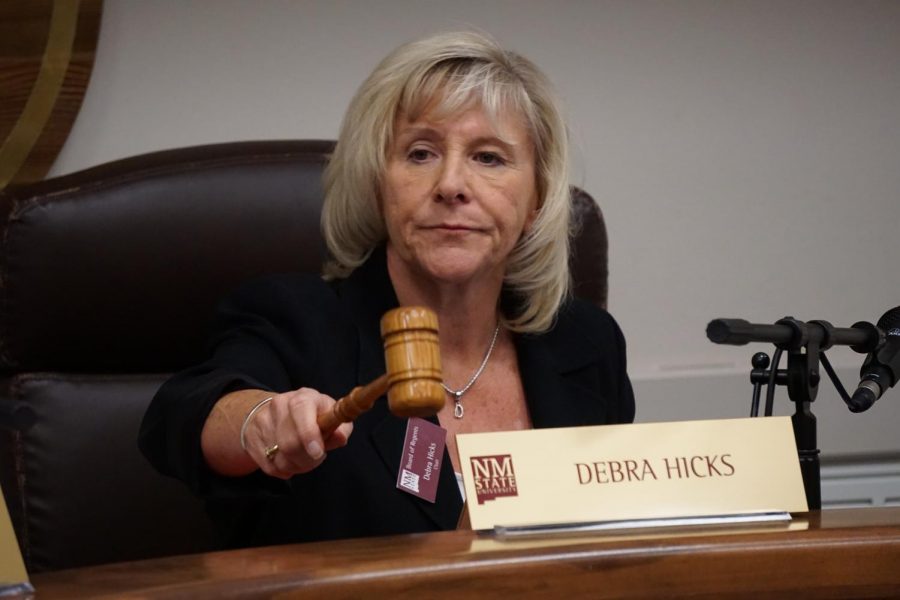NMSU Regents pass 120-credit hour degree requirement
Beginning in July of 2020, all degrees requiring more than 120-credit hours must receive a waiver to ensure timely success of students.
The New Mexico State University Board of Regents passed a revision to a policy enacting a 120-credit hour requirement for undergraduate degrees during their first meeting of 2019 at the end of January in Santa Fe.
The revision to Regents Policy 4.00, which outlines how the university will support student success, was introduced three years ago, according to Kari Mitchell, vice chair of the NMSU Board of Regents, in an effort to support students on their path to obtaining undergraduate degrees in a timely manner.
“The move to the 120 credit hours started three years ago, in which the regents and the administration then committed to getting the institution to this place of the 120 hours by policy,” Mitchell said. “This particular motion in no way takes away or reduces faculty freedom, it simply puts into policy what we intended to make into policy once we gave faculty adequate time to do this conversion.”
The approved amendment reads:
“In furtherance of the Board’s objective to promote timely degree completion, Baccalaureate Degree programs will require 120 credit hours. Programs which exceed 120 credit hours must obtain a waiver from this requirement, granted upon approval by the NMSU provost, and the Board of Regents. Waivers will be granted only upon documented justification (e.g. accreditation requirements).”
April Mason, interim executive vice president and provost, gave an update on the status of the departments, stating that 84 percent of the undergraduate degrees have met the credit hour requirement, which will be reflected in the course catalogue for the 2019-2020 academic year. She said faculty in three programs are still working to address the requirement while 12 programs in different colleges will not be able to decrease their credit requirements to 120. These 12 programs include dietetics, physics engineering, music education, nursing and a number of programs in the colleges of Education and Engineering.
Mitchell said there are various reasons the programs may not reach the lower requirement, including industry and accreditation standards. These programs will have to obtain a waiver from the board of regents and the provost once the requirements are enacted.
The regents voted for the requirement to officially go into effect June 30, 2020. NMSU President John Floros said this will give the remaining departments enough time to alter their programs and for the course catalogue to reflect the changes, considering that the state general education requirements will go into effect next year as well.
“It was a collaborative effort with administration, faculty and students, quite frankly, to get us to a point where we now align with probably decade old best practices-many of our peer institutions have converted to 120 hour mandates quite some time ago,” Mitchell said. “This is should be good news to our students because it should allow them to complete their degrees as timely as their peers in other institutions.”

Leah Romero is a native Las Crucen entering her fourth year at NMSU where she is pursuing a bachelor’s degree in Journalism and Media Studies along with...

